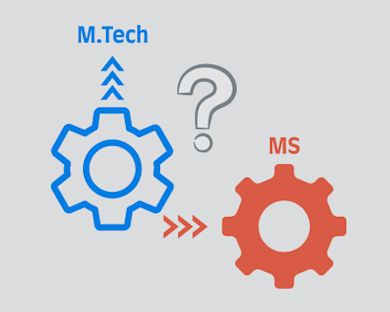Topics covered
- 5 min
- Published: 13 May 2025
- Updated: 12 May 2025
Is the high cost disturbing your study-abroad dream? An educational loan can help turn that dream into reality! You can easily cover not just the tuition fee of your study-abroad program but also the other living costs with the right study loan. Know more in this blog on the exact process to apply for an educational loan for studying abroad and ease the financial load off your shoulders.
Why Consider an Educational Loan for Overseas Studies?
The cost of studying abroad is relatively higher than that of studying in your home country. And, with a continuous surge in the cost of international education, an educational loan can be a highly helpful tool in making your study-abroad dream a reality.
Listed below are some key benefits of taking a loan as against solely relying on personal funds (such as savings) for overseas learning:
Access to better educational opportunities: Applying for a study loan facilitates easy and quick access to a higher quality of learning abroad. The quality of education at international universities in countries like the US, the UK, Canada and Australia is quite high. Students can access the best infrastructure and campus facilities at these universities through an educational loan.
Higher ROI: The potential return on investment of studying abroad is generally higher than the investment involved in the process. Students graduating from top international colleges and universities have a much higher chance of securing lucrative job offers from globally recognised companies at impressively high salaries. This makes applying for a study loan worth it.
Financial flexibility: By applying for an educational loan, several students worldwide can easily manage the tuition fees and other living costs of studying abroad, without having to exhaust their personal savings and investment plans. They can easily spread the cost of overseas learning over a large time period rather than paying a considerably huge sum upfront (if relying only on personal funds).
Join the IDP student community
Connect with peers and student ambassadors to hear real experiences, tips, and advice about studying abroad.

What are the Different Types of Education Loans Available for Studying Abroad?
The various categories of student loan for international studies are as follows:
Secured loans (backed by collateral): This type of education loan for abroad studies is offered to the applicant against their assets, such as fixed deposits, property, or insurance policies, as security or collateral. However, secured loans are generally offered in high amounts at lower rates of interest.
Unsecured loans (abroad education loan without collateral): The applicant does not need to provide any collateral for applying for this education loan. They, however, come at a higher interest rate, and the eligibility criteria for the loan applications are also stricter. The student must provide proof of strong financial strength of the co-applicant and a high academic record.
Loans by banks/NBFCs/specialised lenders: Some foreign banks or Non-Banking Financial Corporations (NBFCs) provide education loans to students without any collateral or excessive paperwork. There are some specialised lending institutions as well that partner with overseas banks to offer similar study loans. These options are particularly helpful when the loan eligibility criteria of traditional banks are difficult to meet.
How Much Loan Can One Typically Avail for Overseas Education?
The exact range of loan amounts offered to different students for studying abroad may vary from one lender to another on a case-by-case basis. Additionally, certain factors like the type of course being pursued overseas, the tuition fee involved, the university applied to, and the cost of living abroad also determine the education loan amount offered.
In addition to the above, the specific policies of each lender and the borrower's individual financial profile (or that of their co-applicant) are likely to vary, which equally affects the loan amount provided. However, for a general understanding, the average loan amount that students can expect to apply for and secure for overseas education from banks and other financial institutions is in the average range of INR 30 lakh - INR 3 crore.
Related Source: https://sbi.co.in/web/personal-banking/loans/education-loans/student-loan-scheme
What are the Basic Eligibility Criteria for an International Education Loan?
Some of the common eligibility requirements that loan applicants are required to meet for an education loan are:
They must be an Indian citizen.
They should have proof of confirmed admission to a recognised international university, college or study institution overseas.
The co-applicant (generally a parent, sibling, spouse or close relative) must have proof of stable income and a strong credit history.
Applicants must be in the age range of 16-35 years at the time of applying for the education loan.
Loan applicants must also provide a strong academic record, such as at least a 60% overall aggregate or an equivalent GPA (as may be specified by different lending institutions)
Related Source: https://www.icicibank.com/blogs/loan/
What Documents are Usually Required When Applying for a Study Abroad Loan?
Different lending institutions may require a set of documents at the time of applying for the education loan. Some of the key documents that you should keep handy for submission are:
Completed the form for the education loan application
A valid passport (as ID or proof of travel)
Academic transcripts such as completion certificates of 10th, 10+2, and other degree courses (as applicable)
Recent passport-sized photographs
Proof of admission at a recognised international university (offer letter)
Scores of entrance exams like GRE, GMAT, IELTS (as required)
In addition to the above, the co-applicant or financial guarantor may also need to submit the following documents as part of the loan application process:
Proof of ID - Aadhaar Card, PAN Card, Voter’s ID, valid passport
Proof of income - Form 16, salary slips and IT Returns (in case of salaried professionals) and balance sheets, proof of business and profit-loss statements (for self-employed individuals)
Financial documents required for both the applicant and co-applicant:
Complete information of assets and liabilities (in case of secured education loans)
Bank statements for the last 6-12 months
Collateral documents such as registration papers, property title deed, valuation report and encumbrance certificate (in case of secured loan)
What are the Key Factors to Consider Before Choosing a Lender?
With several banks and other financial institutions available (both national and foreign) for offering education loans to students, here are some factors that can help make an informed choice:
Rates of interest: Compare the fixed vs. variable rates and also check if the rates are relatively lower for secured loans.
Processing time and fees: Take into account the time taken by the lender for processing the loan application. This is helpful if you have a deadline for admission or a visa application. Also consider the loan application processing fees charged and hidden charges (if any).
Terms of repayment: These include the option of a moratorium period or longer tenure for repayment (some banks offer up to 15 years). Also, check for any prepayment penalties.
Customer service: This is an important consideration as a highly responsive lender can be of particular help during urgent loan requirements, such as fee deadlines or visa interviews.
Reputation of the lender: Make sure to compare offers from multiple lenders and check their credibility and track record. It is a reflection on their transparency in loan transactions and reliability.
How Does the Repayment Process Work for Overseas Education Loans?
The loan repayment for studying abroad generally begins after the moratorium period. This refers to the time period between securing the loan and the start of its repayment. It is generally the duration of the course + 6-12 months (grace period) after course completion or until you get a job (whichever is earlier).
During this period, the applicant is not required to make full EMI payments for the loan. Some banks may require a partial EMI or simple interest only. The different repayment options available to the loan applicant after the moratorium period are:
EMI: This is generally auto-debited from your bank account. You can also check with your lender for a step-up EMI option.
Pre-payment or part-payment: These options are also available with certain lenders, which allow you to pay off your education loan earlier than planned or scheduled.
Any default on the education loan repayment may result in a drop in your CIBIL or credit score, affect the status of your study-abroad visa (if proof of financial ability is required), seizure of collateral (in case of secured loan) and legal consequences too.
Can a Student Avail Tax Benefits on Education Loans for Overseas Study?
Yes, tax benefits are available to students on the interest paid towards education loans under Section 80E of the Income Tax Act in India. The interest payable on the loan amount is fully deducted from taxable income. Additionally, no cap or limit is imposed on the amount of interest that can be claimed for tax benefits. However, this benefit is subject to certain conditions explained below:
The loan must have been secured only for higher education (including overseas education) from a recognised bank or financial institution or an approved charitable trust.
The tax benefit can be claimed only up to a maximum duration of 8 years or until the interest is fully repaid (whichever is earlier).
Only the interest (and not the principal) is applicable for tax benefits.
What are Some Common Mistakes to Avoid When Applying for a Study Abroad Loan?
Some potential pitfalls that loan applicants should be aware of when securing an education loan are:
Incomplete or hurried lender research: Make sure to compare all your lender options thoroughly. Rushing to secure the first loan offer may not be beneficial in the long run. Research well the terms and conditions of the lender, compare the interest rates of all lenders and check for any hidden charges.
Last-minute application: Applying for the loan late may cause delays in application processing and approval, which may further delay your university application deadlines for admission.
Incomplete understanding of loan terms: Some students may not be able to understand certain key terms in the loan application. These include fixed and floating interest rates, moratorium period, etc. This misunderstanding or lack of complete understanding may result in unexpected problems later. Make sure you fully understand the loan agreement before signing it.
Providing incorrect information: Filling out inaccurate details in your loan application form may have serious consequences, including rejection of the application or even legal action. Never provide incomplete or inaccurate information on your financial ability, academic performance, or misleading details about your co-applicant.
Not having a solid repayment plan: This is yet another mistake to avoid at the time of applying for an education loan. Assess your financial strength, potential income and repayment tenure of the loan. Make sure you have a solid employment plan after graduation and some backup for emergencies as well (in case of potential delay in securing a job).
Need Expert Help with Your Study Abroad Loan? IDP Can Guide You!
Want to apply for an education loan to turn your study-abroad dreams into reality? IDP Education can help. We are one of the most credible and trusted study-abroad consultants in India and we help simplify the student loan process for aspiring applicants.
Our consultants provide the necessary expertise to help navigate through the study loan process and its various complexities. Additionally, our valuable connections with leading financial institutions in India allow students to apply for study loans seamlessly.
IDP helps apply for education loans for higher studies in the USA, the UK, Canada, Ireland, Australia, and New Zealand. Get in touch with one of our experts today for guided assistance on the best education loan for study abroad in any of these countries.
FAQs for Applying for Educational Loan for Study Abroad
1. How to get an education loan to study abroad?
One of the best ways to apply for a study loan simply and seamlessly is to apply through a trusted partner. IDP Education is a leading study-abroad consultancy offering expert guidance and assistance in applying for education loans to study in top countries.
2. Can I get a 25 lakh education loan without property?
Yes, it is possible to apply for a study loan of 25 lakh against property as collateral. Many leading financial institutions offer non-collateral education loans to applicants.
3. Which bank is best for an education loan abroad?
Some of the top banks that you can consider for study-abroad education loans are:
State Bank of India (SBI)
Avanse
ICICI Bank
Credila
4. Can I study abroad on a 100% loan?
Yes, you can study overseas on a 100% study loan; however, it depends on certain factors, such as:
Some public banks may require a partial self-funding margin
100% loans may be easier to secure in case of low-cost courses or countries
Providing collateral may boost your loan application and make 100% financing easier
5. Which bank gives a loan to an 18-year-old?
Several banks offer study loans to applicants who are 18 years of age for higher education overseas. They are:
State Bank of India (SBI)
ICICI Bank
Credila
6. Is it risky to take a loan and study abroad?
It can be risky, but it’s a worthwhile investment if planned carefully. The risk factor is the potential debt and lack of ability to rrepay However, the benefits of taking a loan and studying abroad, such as a higher ROI (in terms of employment abroad), outweigh the risk.
7. Does an education loan cover hostel fees?
Yes, a study loan generally covers the accommodation cost, such as hostel fees, in addition to other expenses like tuition fees and other educational costs like books and travel.
8. Can I get an education loan without income?
Yes, some lenders do offer study loans to applicants without proof of income. This is possible for loan amounts lower than a certain limit.
Read More Insightful Articles
Study Abroad Locations: Study in USA | Study in UK | Study in Australia | Study in Canada | Study in New Zealand | Study in Ireland
One account for all your study abroad needs
Create your profile and unlock a wide array of features including personalised recommendations, fast-tracked applications and much more.











